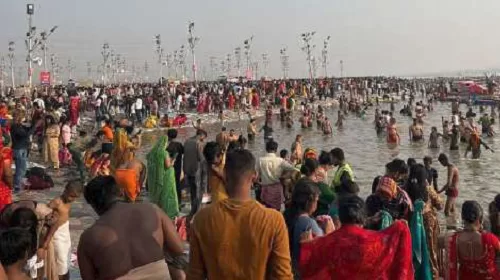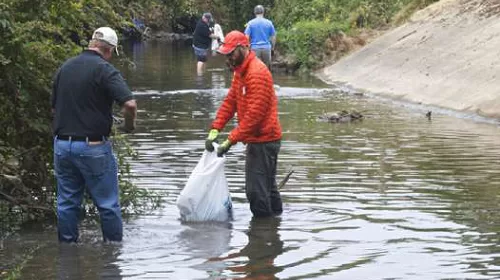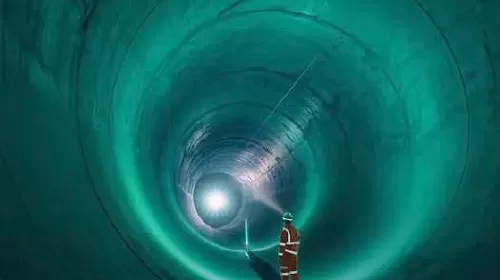A preliminary study by Stanford University’s Richard Dasher and Institute for Competitiveness’ Amit Kapoor has found that the management of toilets, solid waste, and faecal sludge at the recently concluded Maha Kumbh was “99.9 percent perfectly managed” despite enormous challenges.
The 45-day Maha Kumbh, held on the banks of the Ganga in Prayagraj, saw participation from over 65 crore people. Approximately 4,000 hectares of reclaimed land along the river was transformed into a temporary city. Kapoor, with a team of 10 researchers, assessed various aspects of water and sanitation management for over a month.
Their findings, presented at the 12th Regional 3R and Circular Economy Forum in Asia and the Pacific in Jaipur, highlighted the remarkable achievement of maintaining 1.5 lakh toilets used by 1.5 crore people daily. The Uttar Pradesh government deployed around 15,000 sanitation workers who cleaned each toilet every 20 minutes “like clockwork.” The researchers examined about 10,000 toilets across different sectors, noting that soap dispensers were the only missing element.
The study also found that faecal sludge management was “perfectly managed” at temporary treatment plants. Ten sewerage treatment plants and three faecal sludge treatment plants were established for the event. The researchers observed faecal sludge outside designated areas only once during the entire 45-day period, specifically on Mauni Amavasya.
Kapoor emphasized the significant improvement in arrangements compared to the 2012 Kumbh, describing the difference as “chalk and cheese” in terms of implementation when compared to the previous Comptroller and Auditor General report.
Contrary to the Central Pollution Control Board’s findings of high faecal coliform levels in Sangam waters, the study found that river water was “as clean as tap water” at some locations, particularly on days with fewer bathers.
The researchers also assessed drinking water facilities, finding that water quality was “nearly perfect.” Of 150 water tap samples tested between February 1-24, 73 percent (109 taps) met the Bureau of Indian Standards for potable water. The team found 60 taps with overfiltered water and only one tap where water quality exceeded the acceptable TDS limit of 500.





